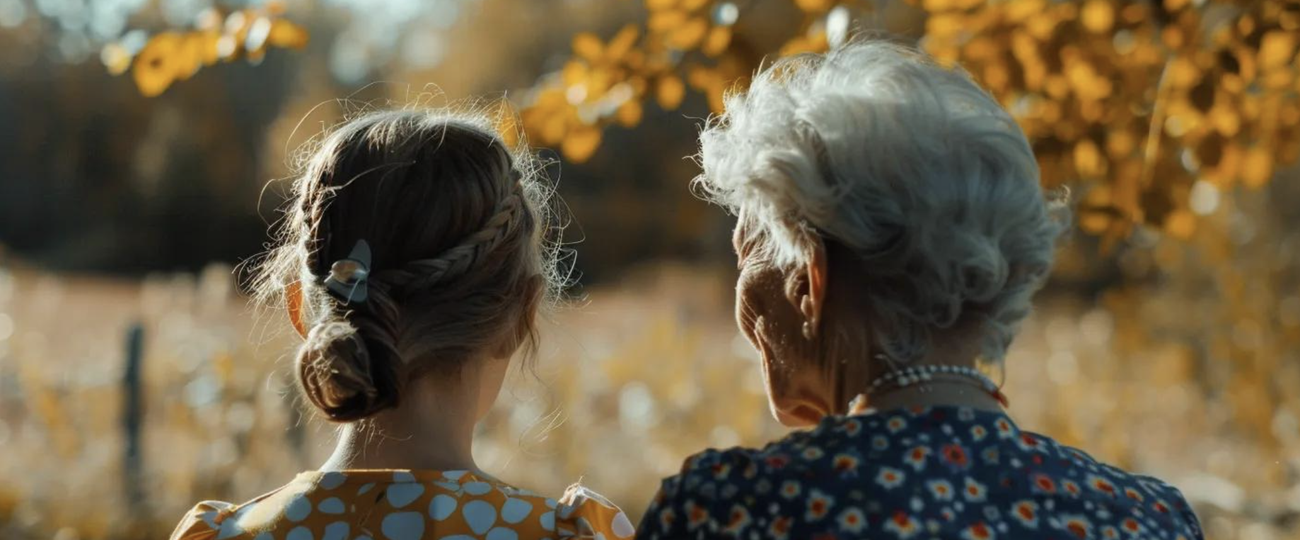Explaining Alzheimer's To Your Child: When Someone in Your Family Has Dementia

When someone you love has Alzheimer's disease or another form of dementia, it affects their brain in special ways. Their brain gets sick, making it hard for them to remember things, think clearly, or take care of themselves the same way they used to. This can be confusing and sometimes scary for children to understand.
What happens with Alzheimer's?
Alzheimer's disease is a complex condition that affects the connections in the brain. It fundamentally alters the way the brain functions, leading to a range of cognitive challenges and more. As someone who may be encountering these symptoms in yourself or a loved one, it's important to understand what happens during the progression of this disease. The hallmark feature of Alzheimer's is its debilitating impact on memory. Individuals may frequently forget names, faces, or important details about their loved ones, which can be distressing for both the person affected and those around them.
Alzheimer's disease changes how the brain works.
Navigating familiar environments may also become increasingly difficult. People with Alzheimer's might find themselves lost in places they once knew well, illustrating how the disease disrupts spatial awareness and memory retrieval. Sleep disturbances and changes in routine can accompany these challenges, contributing to overall confusion and tiredness during the day. It’s not uncommon for individuals to repeat themselves or express frustration, nervousness, or anger seemingly without an obvious cause. These emotional shifts can stem from changes to the part of the brain that controls emotions, a deep-seated fear of losing control, and the awareness of changes happening inside the brain. As you witness these changes, it's crucial to approach the situation with empathy, understanding that they are navigating a difficult experience that affects their minds and their emotional well-being.
It's very important for your child to know that if their loved one acts differently, it's because of the disease - not because of anything your child did. The person still loves them, even if they can't always show it or say those words.
Guiding Your Child’s Understanding of Alzheimer’s Disease
Alzheimer’s disease is a complex and mysterious condition that researchers are tirelessly working to understand. When talking to your child about Alzheimer’s, it’s essential to clarify some common misconceptions.
Alzheimer’s is not contagious. It's crucial to explain that Alzheimer’s cannot be spread like a cold or flu—there's no need to worry about catching it from someone else. This is an important point, as it can help alleviate any fears they may have about close contact with family members who are living with the disease.
It’s not commonly inherited. Let your child know that just because a family member has Alzheimer’s, it doesn’t mean that they (or you) are destined to develop it as well; genetics can sometimes play a role, but they are only one small piece of a much larger puzzle. Only a very small percentage of Alzheimer’s disease and related types of dementia are actually inherited from family genes (about 5-7%). The majority are not inherited.
Alzheimer's is not a ‘normal part’ of getting older. While it’s true that most individuals with Alzheimer’s tend to be over 65 years of age, it's important to reinforce that aging itself does not guarantee the onset of this disease. Many people live long and fulfilling lives without ever experiencing significant memory loss or cognitive decline. In rare cases, Alzheimer’s can also affect younger individuals in their 40s or 50s (called early onset dementia).
By sharing these insights in an accessible way, you can help your child understand that while Alzheimer’s is a serious condition, it is not something to be feared or seen as an unavoidable consequence of growing older. These conversations can foster a sense of knowledge and reassurance, allowing your child to engage with the topic from a place of understanding rather than anxiety.
Activities to help your child connect
When explaining Alzheimer's to your child, suggest ways they can still share love and make memories together with that person:
- Look through old photos together to help their loved one remember past events
- Do an activity like baking or arts and crafts
- Go for walks together or enjoy a scenic view
- Give gentle hugs and hold hands to show love
- Invite their grandparents to watch a practice or sports game
- Watch movies that their grandparents loved as a child
- Work together on simple household tasks like setting the table or folding towels
Want more activities? Find tons of suggestions, along with ways to adapt these activities, on the StillMe social movement website here.
Storytime Support: Books That Help Kids Understand Alzheimer’s
Explaining Alzheimer’s to a child can be challenging, but books are a great way to open up the conversation in a gentle and meaningful way. We’ve rounded up some thoughtfully chosen titles that can help your child process what’s happening in an age-appropriate, compassionate way. Explore our recommended reading list here: Explaining Alzheimer's To Your Child: When Someone in Your Family Has Dementia
Need More Support Navigating These Conversations?
Helping a child understand Alzheimer’s isn’t easy—but you don’t have to do it alone. Alzheimer Calgary offers tools, resources, and expert guidance to support families like yours.
You’ll find age-appropriate tips, caregiver guidance, and local programs designed to help your whole family feel more supported and connected.
